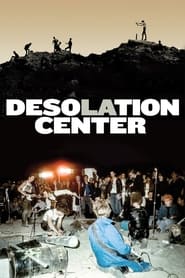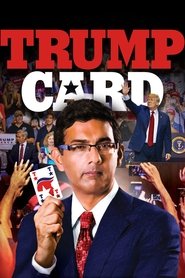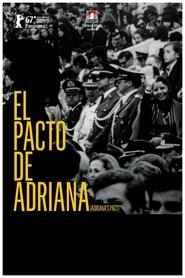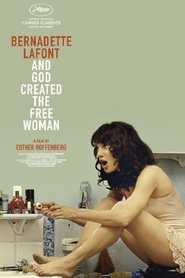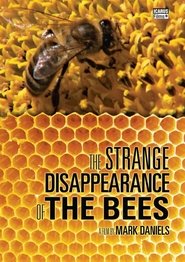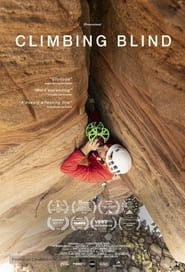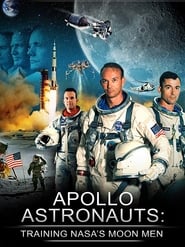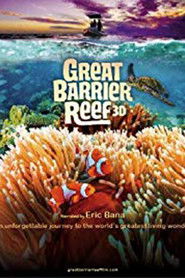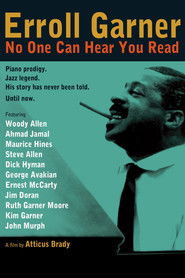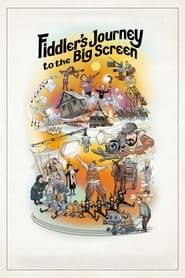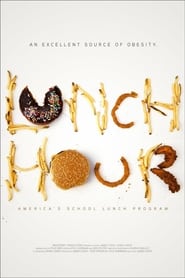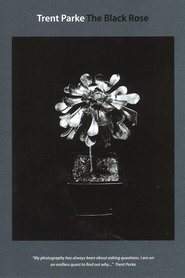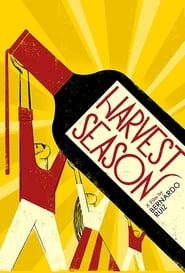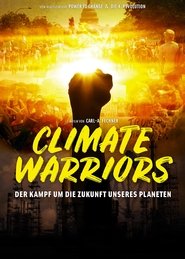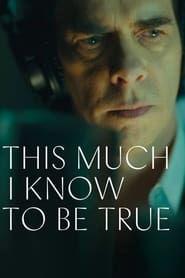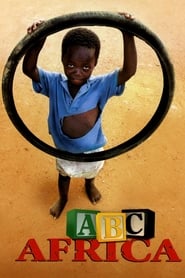Popular Documentary Movies on Kanopy - Page 127
-
Desolation Center
2018
Desolation Center
2018
star 9.3The untold story of a series of Reagan-era guerrilla punk and industrial desert happenings in Southern California that are now recognized as the inspiration for Burning Man, Lollapalooza, and Coachella. Interviews and rare performance footage of Sonic Youth, Minutemen, Meat Puppets, Redd Kross, Einstürzende Neubauten, Survival Research Laboratories, Savage Republic, Swans and more. -
Trump Card
2020
Trump Card
2020
star 4.9Trump Card is an expose of the socialism, corruption and gangsterization that now define the Democratic Party. Whether it is the creeping socialism of Joe Biden or the overt socialism of Bernie Sanders, the film reveals what is unique about modern socialism, who is behind it, why it’s evil, and how we can work together with President Trump to stop it. -
Germans & Jews - Eine neue Perspektive
2016
Following Germany's transformation as a society from the Holocaust to becoming the moral leader of Europe as the country embraces hundreds of thousands of refugees. -
Adriana's Pact
2017
Adriana's Pact
2017
star 7.4Lissette's favorite aunt Adriana, who lives in Australia, is arrested in 2007 while visiting her family in Chile and accused of having worked for dictator Pinochet's notorious secret police, the DINA, and of having participated in the commission of state crimes. When Adriana denies these accusations, Lissette begins to investigate her story in order to film a documentary about her. -
Dennis Rodman's Big Bang in PyongYang
2015
star 6.4Dennis Rodman is on a mission. After forging an unlikely friendship with North Korean leader Kim Jong-un, he wants to improve relations between North Korea and the US by staging a historic basketball game between the two countries. But the North Korean team isn't the only opposition he'll face... Condemned by the NBA and The Whitehouse, and hounded every step of the way by the press, can Dennis keep it together and make the game happen? Or will it go up in a mushroom cloud of smoke? For the first time, discover the true story of what happened when Dennis Rodman took a team of former-NBA players to North Korea and staged the most controversial game of basketball the world has never seen. -
The Middle Passage
1997
The Middle Passage
1997
"Explores the 400-year era of the transatlantic slave trade, when millions of Africans were kidnapped and shipped to the Americas. Features interviews with scholars, oral histories and a dramatic recreation of the Middle Passage" (The History Channel). -
Bernadette Lafont: And God Created the Free Woman
2016
star 6.9A journey in the company of Bernadette Lafont, French Cinema’s most atypical actress. Tracing her career from pin-up girl, to New Wave model of sexual freedom, to drug-dealing granny in the film Paulette, by way of La Fiancée du Pirate and Les Stances à Sophie, this film pays tribute to her extraordinary life and artistic odyssey. Her grand-daughters, Anna, Juliette and Solène, revisit the dreams of Bernadette, in the family home in the Cevennes region where they, like her, grew up. Her close friends, Bulle Ogier and Jean-Pierre Kalfon, reminisce on their artistic and human complicity. Throughout the film, Bernadette Lafont in person, with her inimitable character actress voice, re-evokes a life in cinema marked with insolence, courage and freedom. -
The Mystery of the Disappearing Bees
2010
The future of our food resources depends on one small insect - the western honey bee, or Apis mellifera. Indeed, it is the most important agricultural pollinator on our planet, given that one third of our food supply depends directly on pollination from bees. This documentary tells the story of a worldwide ecological disaster that has been waiting to happen for several generations. -
Generation One
2018
Generation One
2018
Generation One is a short documentary that explores the perspectives of the American-born children of Arab Muslim immigrants as they navigate their two identities. The film follows the life of a Palestinian-American named Hamoody as he decides to leave his tight-knit Arab community and pursue his independence. With vignette interviews from five other Arab-Americans to supplement Hamoody's story and expound upon certain themes, Generation One sheds light on a range of unique challenges found between the hyphens. -
Climbing Blind
2020
-
Great Barrier Reef 3D
2018
star 8What comes to mind when you think of the largest structure built by living creatures? China's sprawling Great Wall? Or maybe the skyscrapers of New York and Dubai? The truth is, no human feat of construction can compare to the sheer size and majesty of the Great Barrier Reef--spanning more than 1,400 miles off the coast of Australia and home to countless unique species of aquatic life. Narrated by acclaimed Australian actor Eric Bana, Great Barrier Reef lets us experience the awe of this natural cityscape and introduces us to the visionaries and "citizen scientists" who are helping us better understand and protect the reef. Grab your mask and snorkel and come on an unforgettable adventure with sea turtles and manta rays, witness the birth of baby seahorses, participate in a coral watch expedition, and discover the exotic splendor of fluorescent corals at night as Great Barrier Reef captures the natural beauty and exquisite strangeness of this awesome, bizarre, and vibrant living world. -
Erroll Garner: No One Can Hear You Read
2013
star 7In a triumphant career that lasted forty years Erroll Garner pushed the playability of the piano to its limits, developed an international reputation, and made an indelible mark on the jazz world. And yet, his story has never been told. Until now. The film explores Erroll's childhood in Pittsburgh; his meteoric rise in popularity while playing on 52nd street, New York's famed jazz epicenter; the origins of his most famous album (Concert By The Sea) and his most famous composition (Misty); his singular, virtuosic piano style; and his dynamic personality, both on and off the stage. -
Fiddler's Journey to the Big Screen
2022
star 6The fall of 2021 marked the 50th anniversary of Fiddler on the Roof, the film Pauline Kael (The New Yorker) called "the most powerful movie musical ever made." Narrated by Jeff Goldblum, FIDDLER'S JOURNEY TO THE BIG SCREEN captures the humor and drama of director Norman Jewison's quest to recreate the lost world of Jewish life in Tsarist Russia and re-envision the beloved stage hit as a wide-screen epic. Oscar-nominated filmmaker Daniel Raim puts us in the director's chair and in Jewison's heart and mind, drawing on behind-the-scenes footage and never-before-seen stills as well as original interviews with Jewison, Topol (Tevye), composer John Williams, production designer Robert F. Boyle, film critic Kenneth Turan, lyricist Sheldon Harnick, and actresses Rosalind Harris, Michele Marsh, and Neva Small (Tevye’s daughters). The film explores how the experience of making Fiddler deepened Jewison as an artist and revived his soul. -
Lunch Hour
2014
Lunch Hour
2014
star 8Filmmaker James Costa investigates the National School Lunch Program and childhood obesity, and shows what schools, parents, authors, doctors, politicians, celebrities, and chefs are doing to combat the problem. -
Trent Parke: The Black Rose
2015
This short documentary showcases Australian photographer Trent Parke’s The Black Rose exhibit while delving into his past, techniques, and philosophy of art. -
Harvest Season
2018
Harvest Season
2018
star 8Harvest Season delves into the lives of people who work behind the scenes of the premium California wine industry, during one of the most dramatic grape harvests in recent memory. The film follows the stories of Mexican-American winemakers and migrant workers who are essential to the wine business, yet are rarely recognized for their contributions. Their stories unfold as wildfires ignite in Napa and Sonoma counties, threatening the livelihoods of small farmers and winemakers who are already grappling with a growing labor shortage, shifting immigration policies, and the impacts of a rapidly changing climate. -
Climate Warriors
2018
Climate Warriors
2018
star 4.3CLIMATE WARRIORS gives a voice to people acting for change. American activists, celebrities and German energy inventors, investors and political activists all drive towards the same goal: saving our world and keeping peace. -
This Much I Know to Be True
2022
star 7.3Like all musicians in 2021, Nick Cave was unable to connect with his audience in person. He uses this concert film to break the vocal and instrumental silence, talk about himself and perform songs from “Ghosteen” and “Carnage”, with help from Warren Ellis. -
ABC Africa
2001
 Netflix
Netflix
 Amazon Prime Video
Amazon Prime Video
 Apple iTunes
Apple iTunes
 Apple TV Plus
Apple TV Plus
 Disney Plus
Disney Plus
 Google Play Movies
Google Play Movies
 Paramount Plus
Paramount Plus
 Hulu
Hulu
 HBO Max
HBO Max
 YouTube
YouTube
 fuboTV
fuboTV
 Peacock
Peacock
 Peacock Premium
Peacock Premium
 Amazon Video
Amazon Video
 The Roku Channel
The Roku Channel
 AMC+
AMC+
 Kocowa
Kocowa
 Hoopla
Hoopla
 The CW
The CW
 Vudu
Vudu
 Starz
Starz
 Showtime
Showtime
 PBS
PBS
 Pantaflix
Pantaflix
 FXNow
FXNow
 Tubi TV
Tubi TV
 Kanopy
Kanopy
 Comedy Central
Comedy Central
 Crunchyroll
Crunchyroll
 Microsoft Store
Microsoft Store
 Redbox
Redbox
 Sun Nxt
Sun Nxt
 ABC
ABC
 DIRECTV
DIRECTV
 Crackle
Crackle
 Fandor
Fandor
 Plex
Plex
